European dimension of labor law: advocates discuss adaptation to EU standards
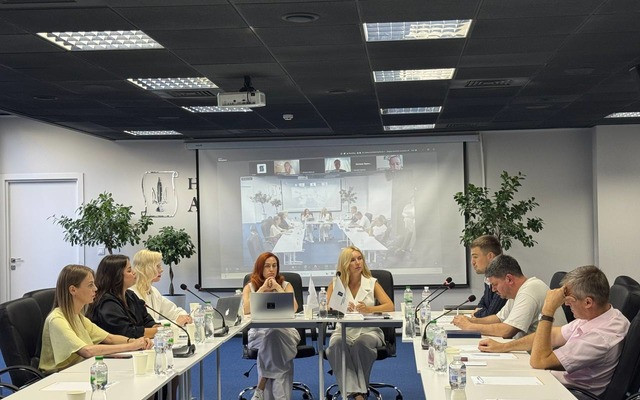
How to protect labor rights during wartime? When is contract suspension illegal? How to refer to EU and ILO standards in court? In the context of martial law and European integration, advocates have to constantly seek new approaches to protecting workers.
Participants in a roundtable discussion recently held at the National Bar Association of Ukraine sought answers to these questions. The event was dedicated to discussing new methodological materials from the UNBA and served as a platform for analyzing current challenges in the field of labor law.
Viktoria Polishchuk, the chairman of the UNBA labor law Committee, who moderated the event, reminded participants of two methodological guides prepared by members of her committee and the Center for labor law and social security of the UNBA Higher School of Advocacy, which were presented in May:
- «The work of an advocate with labor legislation during martial law»;
- «EU Labor Law: Basics for Ukrainian Advocates».
These materials contain an analysis of current issues faced by advocates: mobilization, dismissal, suspension of contracts, transfer of employees, and monitoring compliance with legislation.
V. Polishchuk paid special attention to the issue of implementing European standards in the field of labor. She noted that Ukrainian advocates can and should already refer to the provisions of ILO directives and conventions and the norms of the European Social Charter in their work. These documents not only confirm the legal position but also strengthen arguments in court, especially in the context of adapting legislation to EU requirements.
Committee member Dmytro Navrotsky focused on two aspects: inspections by the State Labor Service and dismissal of managers in wartime. He explained that despite the declared moratorium on inspections, in practice, notifications of unscheduled measures continue to be received. The methodological materials contain recommendations on how employers should act, particularly in cases where inspectors exceed their powers. The speaker also outlined the procedure for dismissing the head of a limited liability company in a situation where the founders are not involved in management: how to organize a general meeting, file a lawsuit, formulate demands for termination of employment and removal from the register, and how to ensure that the decision is enforced through the state registrar.
The issue of dismissal at one's own request during martial law was analyzed by Council Committee member Hanna Lysenko. She outlined the problematic aspects of the application of Article 38 of the Labor Code, in particular in cases where an employee cites valid reasons for immediate dismissal. Using real court cases as examples, the speaker showed how to prove violations by the employer — such as delayed wages, illegal downtime, or deprivation of bonuses — and how to achieve not only recognition of the termination of employment but also the payment of severance pay. She paid particular attention to new restrictions on the time limits for claiming average earnings, as well as typical mistakes made by both employees and employers when formalizing such dismissals.
The court practice regarding the suspension of employment contracts (a legal construct introduced during the war) was reviewed by Center member Natalia Cherevko. She reminded that since June 2024, the updated version of Article 13 of the Law «On the organization of labor relations under martial law» has been in force, which provides for a 90-day suspension period with the possibility of extension only by mutual agreement of the parties. Using examples of court decisions, the speaker showed how employers abuse this provision, in particular by suspending contracts despite the availability of work or formally registering downtime and then transferring employees to suspension. Typical violations include lack of proper justification, violation of the procedure for issuing orders, and selective application to individual employees. Court decisions confirm that such actions are illegal and that employees may be awarded compensation in the form of average earnings.
Center member Anastasia Yakimova presented an overview of key International Labor Organization conventions ratified by Ukraine and explained how advocates can use them in labor disputes. In particular, she gave examples of the application of Conventions No. 100 on equal remuneration, No. 111 on discrimination, No. 158 on termination of employment at the initiative of the employer, and No. 81 on labor inspection in industry and commerce. The speaker emphasized that the provisions of these instruments are integrated into Ukrainian legislation, in particular the Labor Code and the Law on Ensuring Equal Rights and Opportunities for Women and Men, and can serve as a legal basis in court. She also pointed out that state bodies, including the State Labor Service, refer to ILO standards in their practice, for example, regarding the protection of the source of complaints during inspections.
The application of European Union directives in the field of labor was the focus of Committee member Natalia Kaida. She explained that these acts establish minimum standards that are mandatory for implementation and can be used as a source of legal argumentation in legal practice. In particular, she referred to directives regulating collective redundancies, dismissal procedures, guarantees for employees in the event of employer insolvency, prohibition of discrimination, and prohibition of dismissal of pregnant workers. The speaker emphasized that references to these acts in procedural documents of advocates contribute to the formation of judicial practice that takes into account European standards.
The representative of the Secretariat of the Ukrainian parliament commissioner for human rights, Yuriy Ivanov, also joined the discussion. He noted that EU directives are increasingly being used not only by advocates but also by state bodies, primarily in the analysis of draft laws, the preparation of recommendations, and the assessment of the compliance of Ukrainian legislation with European standards. In particular, EU directives and ILO conventions have already been used in comments on draft labor and social codes, as well as in recommendations on setting the minimum wage.
Yevhen Kolosovsky, a member of the Center, drew attention to the problem of dismissing company managers, particularly in cases where the powers of management bodies are not actually exercised. He stressed the importance of complying with corporate procedures, in particular verifying the powers of the director in accordance with the articles of association. The speaker also raised the issue of professional training for lawyers in the field of labor law, noting that current educational programs allocate insufficient hours (credits) to this field, and without knowledge of human resources, lawyers cannot effectively defend either employees or employers.
Associate professor of the Department of labor, environmental, and agricultural law at the Carpathian National University, Natalia Kokhan, focused on the fundamental ILO conventions that are of paramount importance for the adaptation of Ukrainian labor legislation to international standards. She stressed that these documents form a general framework for the protection of labor rights in cross-border legal relations, especially when the employee, employer, and place of work belong to different jurisdictions. N. Kokhan also raised the issue of the proper use of ECHR case law as a source of law in labour disputes and stressed the importance of a uniform interpretation of international norms to ensure an adequate level of legal certainty.
A review of three key EU directives that should serve as a basic reference point for Ukrainian advocates was presented by Centre member Kateryna Tsupka. These are Directive 2003/88/EC on the organization of working time, Directive 97/81/EC on part-time employment, and Directive 2008/104/EC on temporary agency work. She explained in detail what guarantees they establish, in particular regarding minimum rest periods, pay conditions, equal treatment of workers on part-time or temporary contracts, and the prohibition of charging fees for employment. Tsoupka stressed that despite the lack of direct implementation of these directives in Ukraine, advocates can already use them in legal positions as a benchmark for European standards.
Summing up the meeting, V. Polishchuk emphasized that the methodological materials discussed are already being used by advocates in court hearings, training programs, and legal awareness work. They contain not only legal provisions, but also ready-made algorithms for action, structured court practice, examples from real cases, and references to international sources.
The participants of the round table agreed that the dissemination of such developments contributes to the formation of uniform professional standards and enhances the ability of the legal community to respond to new challenges in the context of war and European integration.
Popular news
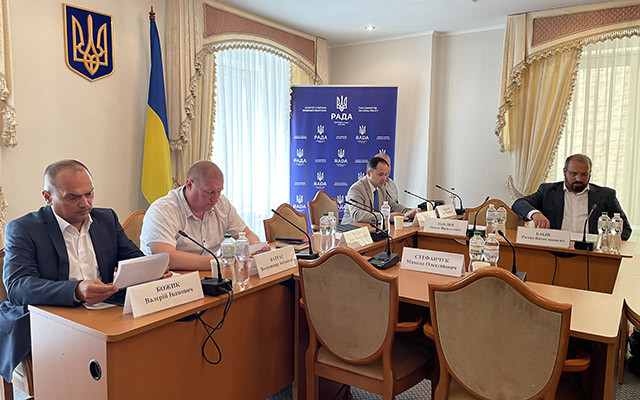
Guarantees of the practice of law
The Verkhovna Rada is waiting for the Minister of Justice to take action on signing the Convention on the protection of t…
Ukraine, which was directly involved in the preparation of the world's first Council of Europe Convention on the protection of the profession of advocate, has still not signed it. There appear to be no formal objections, but no real steps have been taken towards accession either.

Legislation
Support for the defense industry should not upset local budgets, - UNBA
It is necessary to create additional incentives for enterprises in the defense and industrial complex, while ensuring the balance of the budget system and the predictability of both revenues and expenditures of local self-government.

Legislation
UNBA warns of extreme financial risks for defense industry companies
The lack of transparent control over the activities of the Ministry of Defense as a regulator, as well as excessive sanctions for leaving the Defense City regime, create risks for defense enterprises that could lead to their bankruptcy.
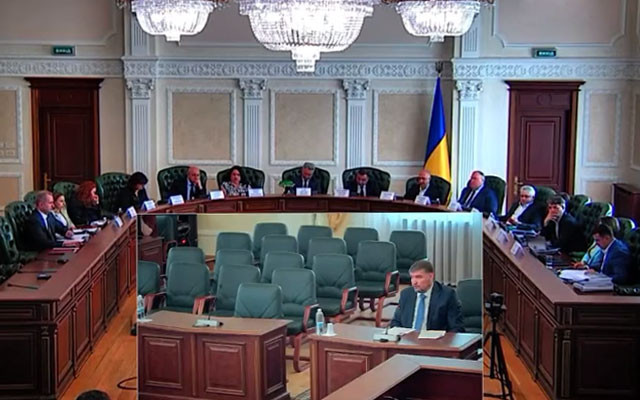
Guarantees of the practice of law
BCU reports interference by a member of the High Council of Justice in the activities of a lawyer and submits officia…
The Bar Council of Ukraine, having considered the statement of advocate Oleksandr Vikhrov, established the fact of interference by Roman Maselko, a member of the High Council of Justice, in the advocacy activities, violation of attorney-client privilege, and exceeding his powers in evaluating a candidate for the position of judge.
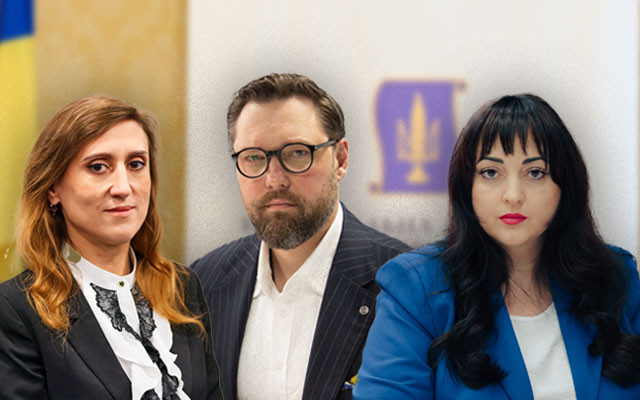
Self-government
BCU selected candidates for membership of the Competition Commission for the selection of members of the HQCJ
In accordance with Article 95-1 of the Law of Ukraine «On the judicial system and status of judges», the Bar Council of Ukraine proposed three candidates to the High Council of Justice for consideration as members of the Competition Commission to conduct a competition for the position of member of the High Qualification Commission of Judges of Ukraine under the BCU quota.
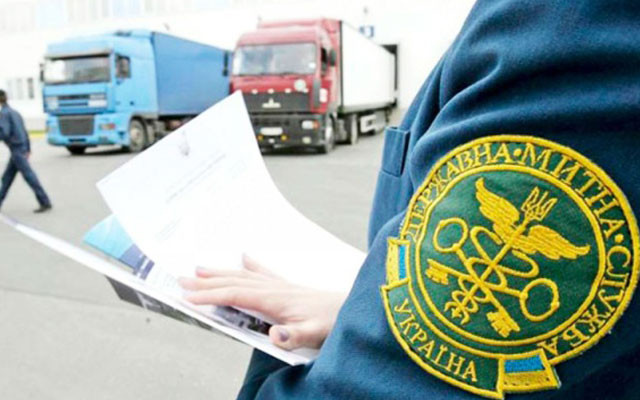
Legislation
DIC and customs control: advocates warn against the risks of draft law No. 13421
Ukrainian defense companies face bureaucratic delays in importing components, which could critically affect the timing of government contracts. At the same time, the mechanism proposed in the Verkhovna Rada creates risks that could outweigh the potential benefits for the industry.

Educational events
Advocates were taught how to distinguish fatigue from exhaustion
Mental health is a topic that still sounds abstract to many people. But in the legal profession, it is a daily reality: stress, high workloads, responsibility for other people's lives.
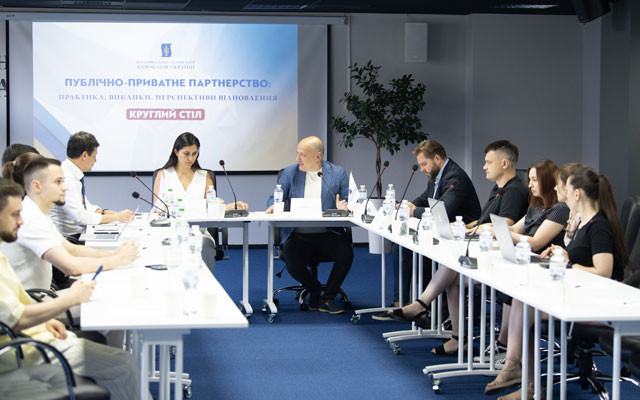
Discussion
Partnership for reconstruction: UNBA discusses new law on PPPs
Public-private partnerships are considered one of the key tools for Ukraine's recovery, but in practice, their mechanisms remain complex, poorly understood, and often ineffective.
Publications

Ihor Kolesnykov A BRIEF SUMMARY REGARDING THE APPLICATION OF THE ORDER ON EXTENDED CONFISCATION IN LATVIA REGARDING FINANCIAL ASSETS OF…

Valentyn Gvozdiy WORKING IN A WAR ZONE

Lydia Izovitova Formula of perfection

Sergiy Vylkov Our judicial system is so built that courts do not trust advocates

Iryna Vasylyk Advocacy in the proclamation of Independence of Ukraine

Oleksandr DULSKY When we cross the border of the Supreme Anti-Corruption Court, we get into another department of the National Anti-Corruption…

Vadym Krasnyk The UNBA will work, and all obstacles and restrictions are only temporary inconveniences

Lydia Izovitova Interview with Lydia Izovitova on the occasion of the 8th anniversary of the founding of UNBA: We are the voice of t…
